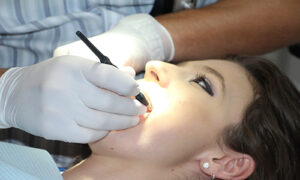Heroin addiction is a deeply troubling and destructive condition that can devastate individuals and their families. Fortunately, there are effective heroin addiction treatment options available that provide hope for those caught in the grip of addiction. In this article, we will explore the various facets of heroin addiction treatment, including the goals, approaches, and the importance of seeking help.
Understanding Heroin Addiction:
Before delving into treatment options, it is crucial to grasp the nature of heroin addiction. Heroin is a potent opioid derived from morphine, known for its euphoric effects. Over time, repeated heroin use leads to tolerance and dependence, where individuals require higher doses to achieve the same effects. This cycle often culminates in addiction, marked by compulsive drug-seeking behavior and an inability to control drug use.
Goals of Heroin Addiction Treatment:
Heroin addiction treatment programs aim to achieve several essential goals:
-
Detoxification and Stabilization: The initial phase of treatment focuses on safely detoxifying individuals and stabilizing their physical and mental health. Medical supervision is crucial to manage withdrawal symptoms and address immediate health concerns.
-
Addressing Underlying Issues: Addiction often coexists with underlying psychological, emotional, or social issues. Effective treatment programs seek to identify and address these root causes to prevent relapse.
-
Breaking the Cycle: Heroin addiction creates a relentless cycle of drug use, withdrawal, and cravings. Treatment programs help individuals break free from this cycle through a combination of therapies and medications.
-
Developing Coping Skills: Learning healthy coping mechanisms and life skills is a critical aspect of recovery. Treatment programs equip individuals with the tools they need to navigate challenges and stressors without resorting to drugs.
-
Reintegration into Society: Successful recovery involves reintegrating into society as productive and healthy individuals. Treatment programs support individuals in rebuilding their lives, including finding employment, mending relationships, and pursuing education or vocational training.
Approaches to Heroin Addiction Treatment:
Heroin addiction treatment programs employ various approaches to address the complex nature of addiction. These may include:
-
Medication-Assisted Treatment (MAT): MAT combines medication, such as methadone or buprenorphine, with counseling and therapy. These medications help reduce cravings and withdrawal symptoms, allowing individuals to focus on their recovery.
-
Behavioral Therapy: Therapy sessions, such as cognitive-behavioral therapy (CBT) and contingency management, help individuals identify and change destructive patterns of thinking and behavior associated with addiction.
-
Support Groups: Group therapy and support groups like Narcotics Anonymous provide a sense of community and shared experience, fostering encouragement and accountability.
-
Individual Counseling: One-on-one counseling sessions allow for personalized treatment plans and in-depth exploration of underlying issues.
-
Holistic Approaches: Some programs incorporate holistic therapies such as yoga, meditation, art therapy, and acupuncture to address the physical, emotional, and spiritual aspects of addiction.
The Importance of Seeking Help:
The path to recovery from heroin addiction is undoubtedly challenging, but individuals need not face it alone. Seeking help through a heroin addiction treatment program is essential for several reasons:
-
Safety: Heroin withdrawal can be physically and mentally distressing. Professional treatment ensures that individuals detox safely under medical supervision, reducing the risk of complications.
-
Effective Treatment: Treatment programs are based on scientific evidence and tailored to individual needs, increasing the likelihood of successful recovery.
-
Support System: Treatment programs offer a network of support, including healthcare professionals, therapists, and peers who understand the challenges of addiction.
-
Preventing Relapse: The support and skills acquired in treatment can help individuals avoid relapse and maintain sobriety.
ADHD Test for Teens: Navigating Diagnosis and Support
Attention-Deficit/Hyperactivity Disorder (ADHD) is a common neurodevelopmental condition that affects individuals of all ages, including adolescents. Accurate diagnosis through an ADHD test for teens is crucial for understanding their challenges and facilitating appropriate support. In this article, we will explore the process of ADHD testing for teenagers, its significance, and how it can benefit both teens and their families.
Understanding ADHD in Teens:
ADHD is characterized by persistent patterns of inattention, hyperactivity, and impulsivity. While it is often diagnosed in childhood, it can persist into adolescence and adulthood. Teens with ADHD may struggle with schoolwork, time management, organization, and maintaining focus on tasks.
The Role of ADHD Testing:
ADHD testing for teenagers serves several important purposes:
-
Accurate Diagnosis: ADHD testing helps confirm or rule out the presence of ADHD, as the symptoms can overlap with other conditions like anxiety or learning disabilities.
-
Individualized Support: A diagnosis obtained through testing allows for the development of an individualized support plan tailored to the teen’s specific needs.
-
Educational Accommodations: A formal diagnosis can lead to educational accommodations, such as extended test-taking time, classroom modifications, or access to support services.
-
Treatment Planning: A precise diagnosis informs the selection of appropriate treatments, which may include behavioral interventions, counseling, or medication.
The ADHD Testing Process for Teens:
The process of diagnosing ADHD in teenagers typically involves several key steps:
-
Referral: A healthcare provider, school counselor, or psychologist may refer a teenager for ADHD testing based on observed symptoms and behaviors.
-
Clinical Evaluation: During the initial evaluation, the healthcare provider collects a detailed medical history, developmental history, and information about the teenager’s current symptoms.
-
Behavioral Assessment: The examiner may conduct behavioral assessments, including interviews with parents, teachers, or caregivers, to gain a comprehensive view of the teenager’s behavior in various settings.
-
Standardized Tests: ADHD testing often includes standardized rating scales and checklists filled out by parents, teachers, and the teenager, which assess the presence and severity of ADHD symptoms.
-
Cognitive Testing: Neuropsychological assessments may be conducted to evaluate cognitive functions, including attention, memory, and executive function, which can provide additional insights.
-
Diagnostic Criteria: The diagnosis of ADHD is based on the criteria outlined in the Diagnostic and Statistical Manual of Mental Disorders (DSM-5). To receive a diagnosis, a teenager must meet specific criteria for the disorder.
Benefits of ADHD Testing for Teens:
ADHD testing offers numerous advantages for teenagers and their families:
-
Accurate Diagnosis: Testing ensures an accurate diagnosis, helping teens and their families understand the condition and its impact.
-
Individualized Support: The results of testing allow for the development of personalized strategies and interventions tailored to the teenager’s unique strengths and challenges.
-
Educational Accommodations: A formal diagnosis can lead to educational accommodations that support academic success and reduce stress.
-
Treatment Planning: Testing results guide the selection of appropriate treatments, which may include behavioral therapies, counseling, or medication, to help teens manage their symptoms effectively.
-
Self-Awareness: A diagnosis obtained through testing can foster self-awareness in teenagers, helping them understand their strengths and areas where they may need additional support.
In conclusion, ADHD testing for teenagers is a vital step in understanding and addressing this neurodevelopmental condition. It provides a foundation for tailored support, educational accommodations, and treatment strategies that can significantly improve the lives of adolescents with ADHD and their families.










